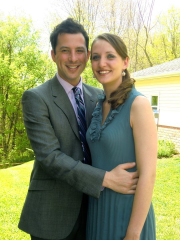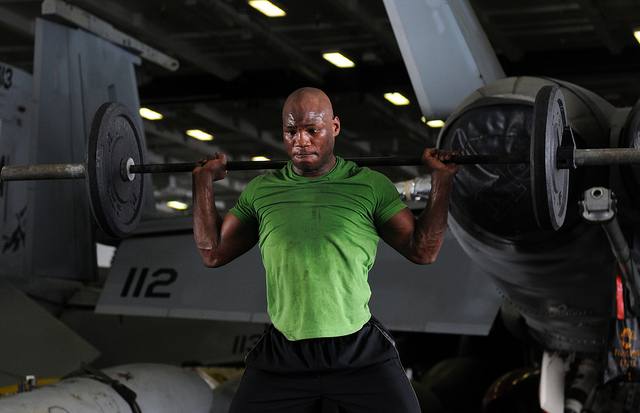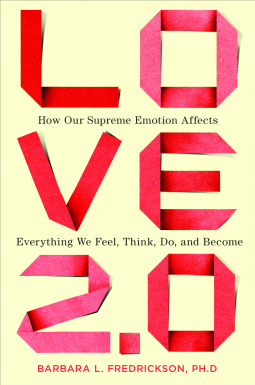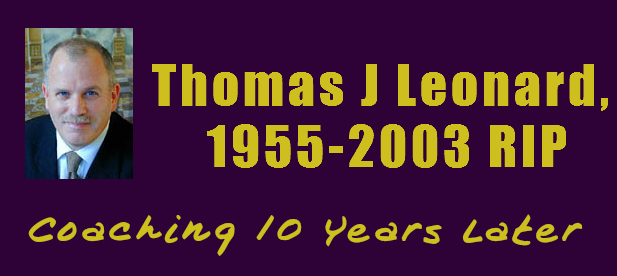 The following guest blog post by Jeremy Tick, Coach for Entrepreneurs, is an invitation to the entrepreneurial spirit that is often identified as the American Spirit, also known as the human spirit. A business owner since the age of 24, Jeremy is uniquely familiar with the challenges faced by individuals at all stages of business development. His work is dedicated to aid Creative Professionals in building meaningful brands and developing systems and structures for success with which to create sustainable profit. You can reach Jeremy at www.jeremytick.com and www.tickmanagement.com
The following guest blog post by Jeremy Tick, Coach for Entrepreneurs, is an invitation to the entrepreneurial spirit that is often identified as the American Spirit, also known as the human spirit. A business owner since the age of 24, Jeremy is uniquely familiar with the challenges faced by individuals at all stages of business development. His work is dedicated to aid Creative Professionals in building meaningful brands and developing systems and structures for success with which to create sustainable profit. You can reach Jeremy at www.jeremytick.com and www.tickmanagement.com
The unique attribute shared amongst all Americans, the quality that makes each of us the same, regardless of age, race, sex, religion, sexual orientation, politics or ethnic background is that we are all the offspring of immigrants. Each of our ancestors came from somewhere else. Some came to escape religious persecution, some were forced against their will, some came in pursuit of wealth, others came because they needed to find work to support families at home. The list of reasons is endless, yet one fact remains: our ancestors came to this country as immigrants and those who survived stayed. Consciously or not, these individuals became a part of the American Experiment – something bigger than they brought them here and something bigger than themselves kept them going. With the passing of generations, came the pursuit of self-actualization.
Regardless of their place of origin each of our ancestors share one sole quality: willpower. Not a single of them in generations past, save an extraordinary few, had anything handed, granted, given or guaranteed. Through diligence, hard work and sheer determination our ancestors carved out for themselves an identity, experience and resultant way of life.
The fruits of their labor speak volumes. We live in an extraordinary time where the opportunity for self-actualization has never been more present. We are educated and exposed, liberal in our social construct, accepting in our embrace of change, and live in a time and place where elitism by situation of birth has been replaced by an orientation toward meritocracy such as has never, in the history of the modern world, been seen. Economics, in its true iteration, where the market drives all, has taken hold. For those of us capable of its understanding its value, it is time to contemplate this new reality and consider its relevance to our way of being. To achieve this mindset we must consider the roots from whence we stem. To do so is to simplify the quest we embark on in our pursuit of the unreasonable and, in doing so, find a way of being more relevant to our individual talent and attributes and thus our own capabilities for self actualization.
In order for survival of the cultural and lifestyle shock thrust upon our ancestors when arriving in their new ‘home,’ some primal instinct for survival has to have kicked in. The motivators contained in each of our predecessors to understand and identify their place within the construct of this new society, nor what they experienced in doing so, cannot be fully explained save for our own existence. Yet via the opportunities to live in the free economy that now lay before us, that they created for us, we share one key attribute: this same orientation, willpower. There is hope. There is opportunity, there is a promise of freedom from the burdens of debt, for ownership of homes and businesses and education such that we can experience a life of fulfillment in ways that our predecessors identified and worked toward for us. To find these we must look inside of ourselves and create a new reality such that we can achieve these now fundamental luxuries and in doing so, fulfill our familial destiny.
It is safe to say that many of us, having spent our developmental years preparing to play a game no longer in existence are experiencing some of the same discontent/disenchantment/disorientation that our ancestors did. Those of us old enough to recall working in the pre-recession days likely miss certain perks, comforts and other accouterment of the corporate life. We miss the promise of stability and the structures promised and fulfilled. Those of us who spent years preparing to participate in the economy in the ways in which we most identified, socially and intellectually, likely find a certain disconnect in the way we think of ourselves and the opportunities presented as income generating situations. Indeed, many of us have had dreams modified, broken or disjointed as result of the externalities that surround us. But the truth is that this is the situation of life as it currently presents itself and it is time to stop whining about it. Social welfare is not going to change this, the creation of new work opportunity by some large governing body will not repair the displacement we feel as result of the economic correction. No new and great job creation on the part of the government or large entity is going to fix what has become antiquated and broken. Novelty and change will always prevail – this is a reality that has to be accepted – and embraced – for without change there would be none of the possibility and progress we now live. The only way to achieve and restore our faith and capabilities lies in a reorientation and perhaps even a constitutional recall into the stuff that we are truly made of. It will require a great deal of digging, but just as the titled nobility once rested on the laurels of its birth and the achievements of those before them, so too can we: inside of ourselves lives the capacity to forge the lives we are entitled to, just as our ancestors, wholly displaced and confused by the realities of their migratory situations did before us. It just takes work.
This personal work requires us to reassess not only our roots but also our visceral priorities. We often look to past generations and the relative ease they seem to have experienced in the attainment of life’s simpler pleasures: often the pictures portray a grandparent in front of a new home, during the purchase of a new car, or wearing a cap and gown. Note that many of these pictures are taken at an age older than sixteen or twenty-two or even at twenty-eight – it is no matter. Note too, that many of the achievements made by our predecessors were on a smaller scale than that which we aspire to. For those of us still ‘holding on’ to the notion of self entitlement by situation of birth, this opens the argument of possibility to suggest that the American Dream is dead, that the work of the generations before us and their sacrifices and investment for our wellbeing were for naught given the implosion of the market and its resultant fallout. But I will argue differently. This is our situation by birth. I do not believe that our for-bearers fought through their work in coalmines or on cotton plantations or in fields or in sweatshops or in water as journeymen or teamsters so that we could find cushy employment in cubicles. I believe they invested in this way of life because of their belief in the opportunity to feel complete in their economic participation – that those of them who toiled forward provided for future generations by giving them access to a life different than their own, invested, through hard work, in our ability to have choices to do the same for ourselves. And somehow, the largess achieved benchmarks of their own. No, many of them did not summer in the Hamptons, nor did they take the Grand Tour, nor did even many of them attend school beyond that which was vital, available or convenient relevant to family welfare. But they worked, fed and clothed their children and provided for you to have the opportunity to find your own capacity to contribute to your family’s legacy and thus their own.
It is true, these people may not have toiled in the fashion that you seek, feel entitled to based on the situations of your birth or even really want to. But they worked toward achievement of a higher standard of life than previously existed because they tried, they cared, and they took notice and pride in a job well done. While their lives may not have been as exciting as the ones we had once envisioned for ourselves, they seem to have been just fine. The transfer of wealth between the WW II Generation and its predecessors is the largest in history. This is not because most of them invented some new widget that made them wealthy quickly nor because of their lofty positions in corner offices. It is because they worked hard, saved, purchased quality product that which was within their reach, and passed these things down to their children – legacies of a sort – that many amongst us seem to overlook in our pursuit of new and untold wealth at very early and quite frankly, unreasonable ages. In short, our ancestors, lived their lives with common sense approaches to problems. And through their work, found attainment of the life they identified for and created for themselves.
Maneuvering forward, it can be suggested that for most immigrants life upon arrival was less than pleasant. This is not to discount the population of people whose ancestors were brought by force, but contained inside those who survived and foraged forward to achieve the same pursuit of liberty as those before them, was something bigger than aspiration: it was the human spirit. These individuals, even more than their neighbors, were clearly in possession of a determination unlike any others in modern history: the result of their contribution is incalculable. But this is not meant to be a history lesson nor is it meant to bring up moot subjects as they pertain to human rights - what is meant to be discussed is both the entrepreneurial and survival spirit contained in us all, instilled at birth, that we cannot overlook or avoid - our responsibility to ourselves and our families, as Americans.
The concept of an American life is so multi-faceted that to pursue any form of dialogue surrounding it is to be left for drinks at the end of a workday or to be explored in a dissertation. Let’s leave it for that. What I am instead referencing is the need for a recollection of sorts, the importance of digging down inside of oneself and finding the necessary gumption required to avoid the complacence set forth by the never ending pursuit of more that so many of us fall prey to.
It is safe to say that many of us do not and cannot achieve the dreams we set forth for ourselves as children. While a sad truth, it is also a realistic one. Many of us will never be movie stars nor will we be Presidents, nor astronauts nor media moguls. For the vast majority of us, at some point in our lives a realistic approach to the creation of meaningful survival must be embraced – else we will forever find ourselves feeling somewhat empty, devoid of the dreams of our youth and disappointed by the way things have panned out because life just does not replicate the movies, no matter how many of the behaviors of the big screen we emulate. While sobering, the sooner we begin to contemplate the relevance of such a concept, the sooner we can begin to find inner peace and reorganize our expectations and aspirations to accommodate the reality of society as it now presents itself. The fact is and remains that with the global recession and the shrinking of the world as result of technology there is a need and rationale for new thought. And to find the spirit contained inside of us required to achieve this really only needs to spoken to, recalled and reminded of its existence in order to be woken from its dormant sleep. Through its awakening inside each of us lies the ability to achieve an element of inner peace, of security, of any number of other things long forgotten as we as a collective continually seek to emulate the leisure class in our pursuits, and in doing so, become more and more beholden to the increasingly more antiquated system rapidly losing its relevance. Self-employment, creative business efforts and technical expertise distributed though trade practices, entrepreneurial endeavors manifested into functional business, is the only route toward this freedom.
For some technology is the only answer to entrepreneurship. For others too, success on a large scale is the only reasonable pursuit of any form of career. Indeed, in my experience of many entrepreneurs, the pursuit of funding to underwrite their endeavors seems to be the most logical route to follow. Rarely is there a desire to perform the work necessary to get the widget they seek to bring to market nor is there a willfulness to accept economic realities or realistic assessment of market opportunity as it pertains to their product. I will state this over and over again: entrepreneurship is not writing a business plan, pitching an idea or seeking funding. Entrepreneurism is the creation of a product or service of value distributed for profit in perpetuity. Entrepreneurism is not always fun nor is it a fast road to success and riches. But it is the ability to be the master of your own fate, to test within and allow for the market to determine your success and once identified, for you to capitalize upon these findings in pursuit of the profit that drives all economics. And thus, become an entrepreneur.




















